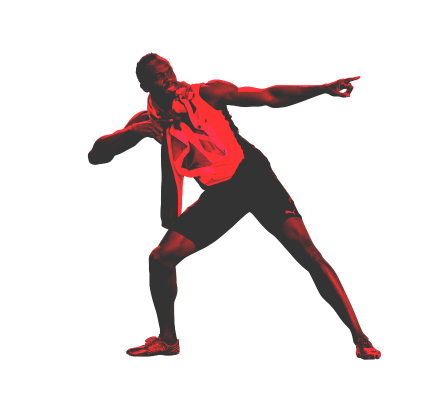
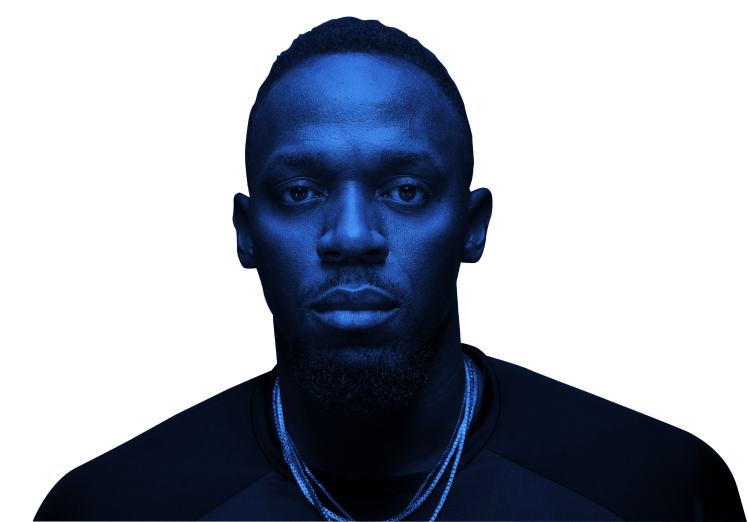
He is the fastest man on earth and considered to be the greatest sprinter of all time: Jamaican former athlete and PUMA brand ambassador Usain Bolt. He currently holds the world records in the 100 meters, 200 meters and 4 × 100 meters relay. An eight-time Olympic gold medalist, Bolt is the only sprinter to win Olympic 100m and 200m titles at three consecutive Olympics: 2008 in Beijing, 2012 in London and 2016 in Rio de Janeiro.
With PUMA, Usain spoke about what is needed to become a top-class athlete and what motivated him throughout his career.
“I mean it’s not going to be an easy road, but hard work, dedication and you´ll get there.”
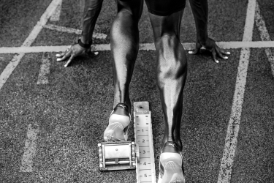
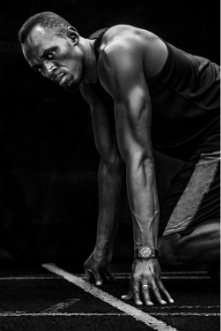
Usain, at what stage in your life did you realize that you were a gifted athlete?
I knew I was gifted from the start, because as soon as I started, I was winning. I knew from the start, that I was good at it, and so I continued. But I think it came to me that I was a talented athlete when I started going to the CARIFTA Games, the Junior Games. That´s when it really dawned on me. I knew: ‘Listen, you’re very good at it. You should do this for a living.’
What would have been your Plan B if you hadn´t become an athlete?
I would have always been an athlete, I think. Some form of an athlete. Sports was my life growing up. My dad is a massive cricket fan, so I started watching cricket. I wanted to become a cricketer, and I love football also, so football was a part of me. For me, growing up it was never about wanting to become a fireman, or a doctor, or a policeman. It was always just sports in general. That’s what I knew, that’s what I was brought up on.
How much of your success is down to talent and how much to training hard?
For me, talent and training go hand in hand. I remember my coach told me: “Listen! Everybody on the circuit is talented. It´s all about who works hard.” For me that was a big thing, because when I got to the circuit, I felt like I didn’t need to train. I was beating others at Juniors without really much training. So, when I got to the Senior level, I felt like it was the same thing. It took me a while, probably two years, to really understand that you have to train. Talent and hard work, I think they actually go hand in hand. You need talent and then you need to work hard on your talent to be the best that you can be.
“And that’s when I set my goal of trying to win the Olympics three times.”
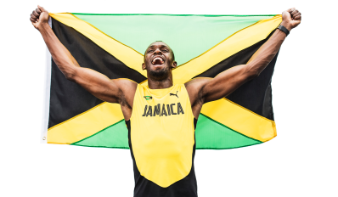
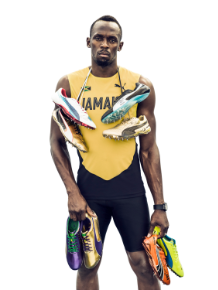
How did you stay motivated during training ahead of a major tournament?
For me, it was what I wanted. When I started, one of my main goals was to win one Olympics. I started out and I won the 100 meters in 2008. And then I won the 200 meters and after that my coach and me sat down and he said: ‘You know what? No one has done this twice.’ I was like: ‘No one has ever won the Olympics twice? Cool.’ And that’s when I set my goal of trying to win the Olympics three times. That was my major goal, but I knew I needed to be dominant every year, if I wanted to do this. I can’t just try to dominate every four years, I had to keep it up and dominate throughout the time I’m in the sports. That’s what kept me motivated, because I had a bigger goal at the end of the day - to do it three times. I couldn’t slack off one year, I had to keep on going every year. That’s what motivated me for the big championships.
How important is it to prepare to perform?
It’s very important to prepare to perform. I see a lot of guys even now, who train hard, but when they get out there, they don’t perform, because they didn’t train their mind. I think mental strength is one of the biggest things. I think a lot of guys now are not mentally strong or mentally prepared when they get to compete. So you have to prepare yourself to perform, definitely.
How important is it to learn from your mistakes?
It’s very important. That’s one thing my coach always says: “You have to learn how to lose before you learn how to win.” It made absolutely no sense to me, but all he was saying is: “You got to learn from your mistakes, even when you win, you have to learn.” Because at times when I felt like I had a perfect race, when I ran the World Record for the first time, I said to him: “Coach, good race?” And he was like: “No.” So it’s always a learning, no matter what, mistakes or a good run. There´s always something you can improve on. I think you can learn from any situation.
“You need to work hard on your talent to be the best that you can be.”
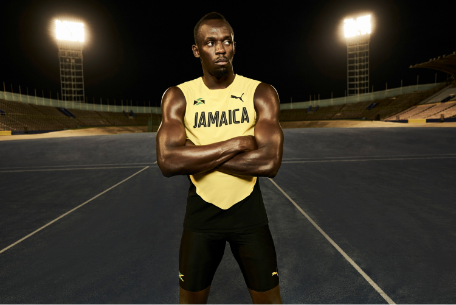
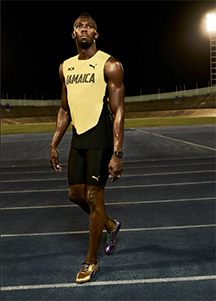
What were the most difficult moments in your career?
I think 2011 when I false started - that was a tough one. I´ve never false started at a championship before, or in general I don’t really false start. For me, it was tough to actually put it behind me and then go on to try to run the 200 meters. 2015 was also a tough year for me. It was when Justin Gatlin was on top of his game. While he was doing well during the season, I was struggling with a few injuries here and there.
What advice would you give an up-coming athlete?
Be dedicated! Sports is not easy, there are always setbacks, but be dedicated to your craft, commit fully and just enjoy the journey. I mean it’s not going to be an easy road, but hard work, dedication and you´ll get there. Just persevere.
What’s next for Usain Bolt?
I´m just trying to be a businessman, try to do different businesses, take on different opportunities, still work with my sponsors like PUMA. I have a lot going on, I think I’m busier now that I have retired than when I used to compete. I´m doing a lot.
Thank you, Usain.